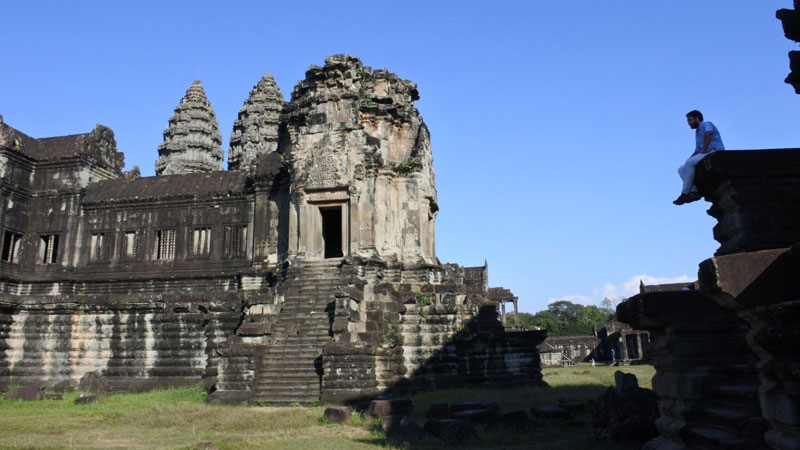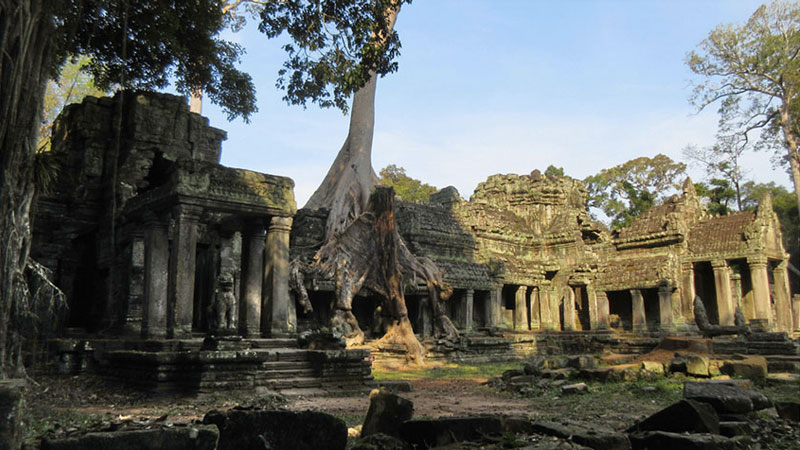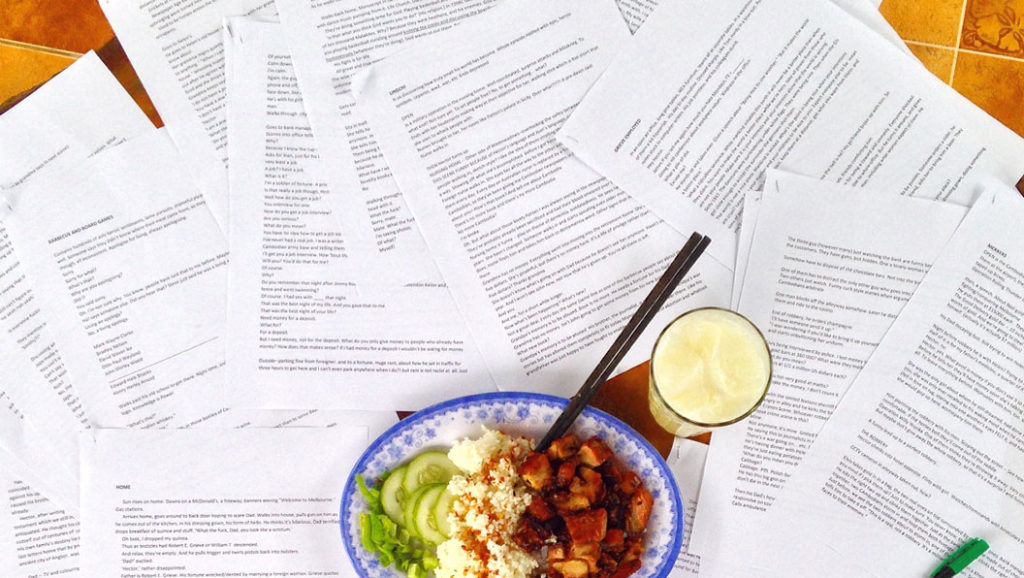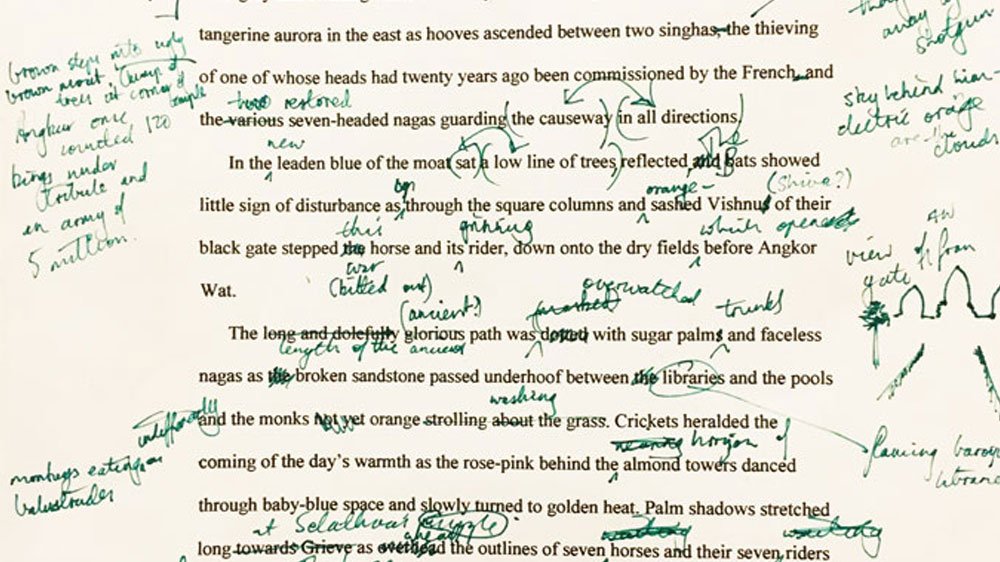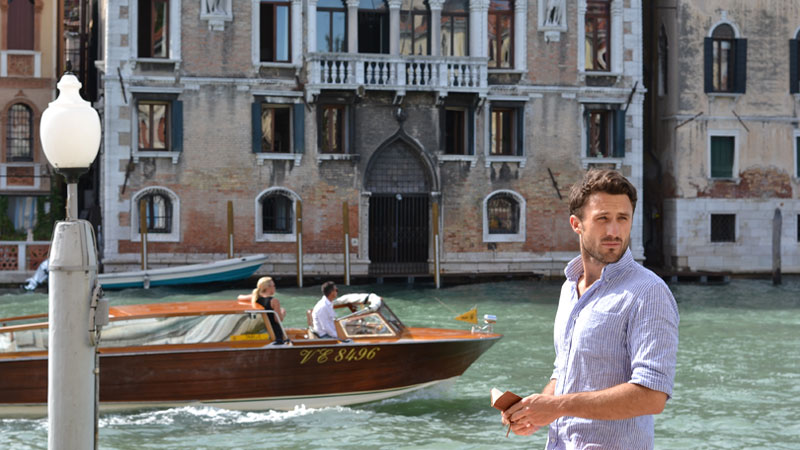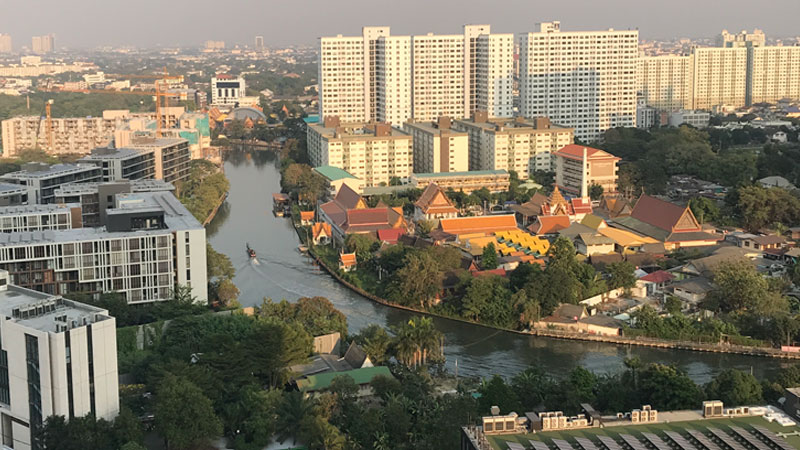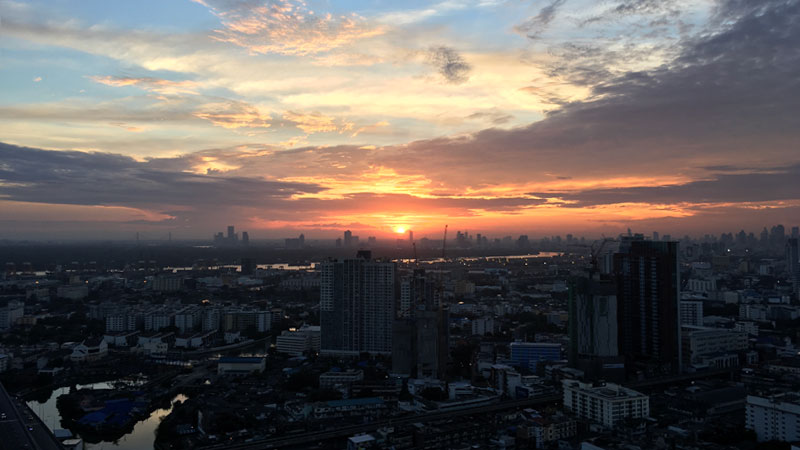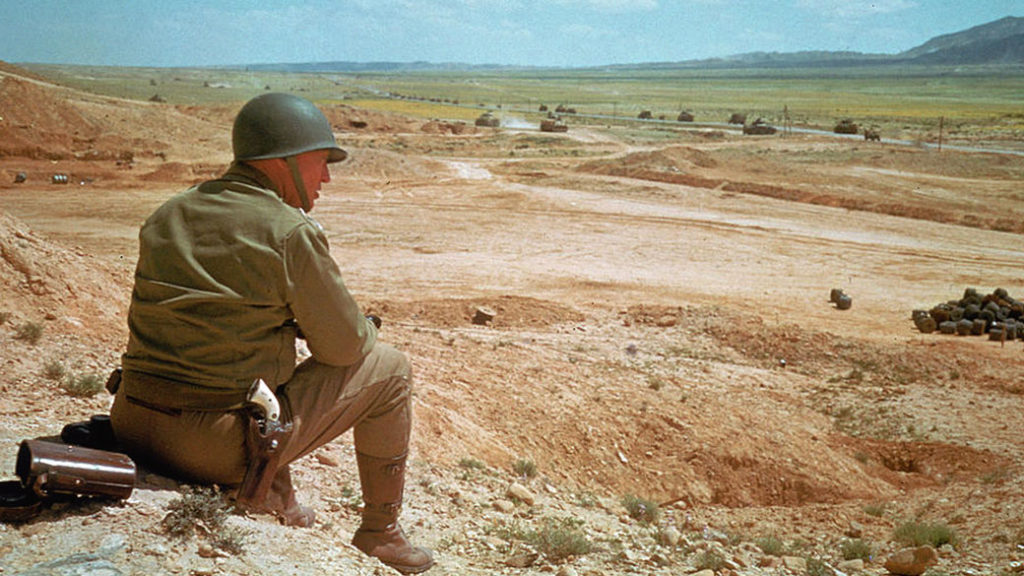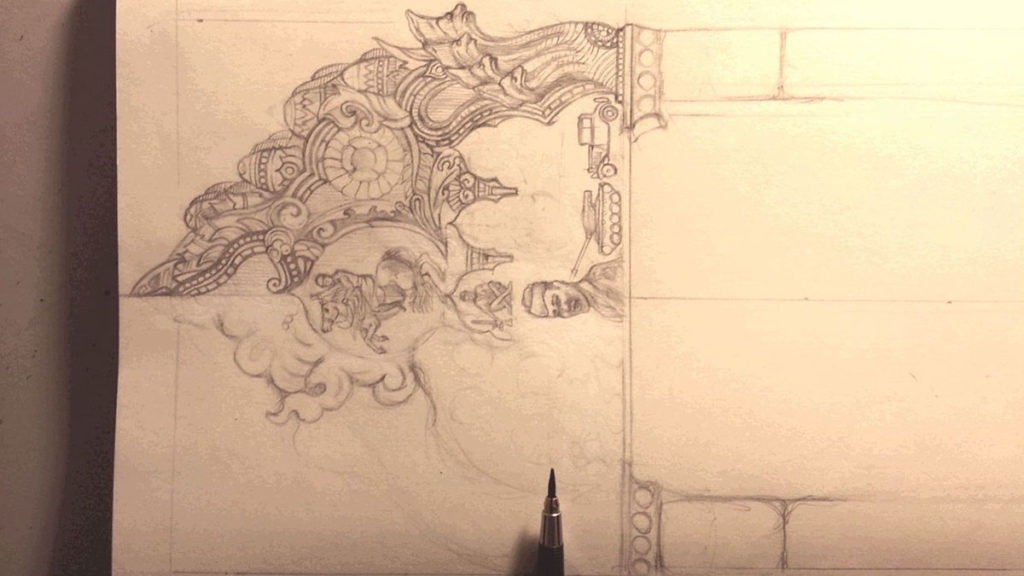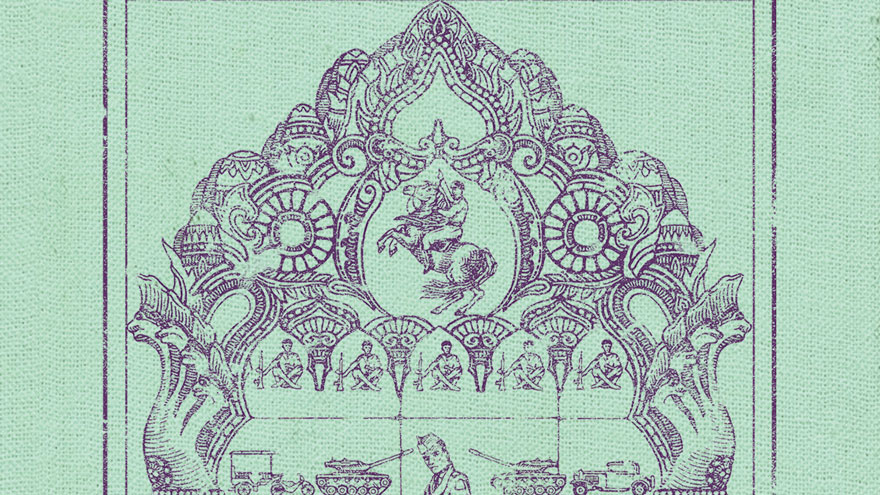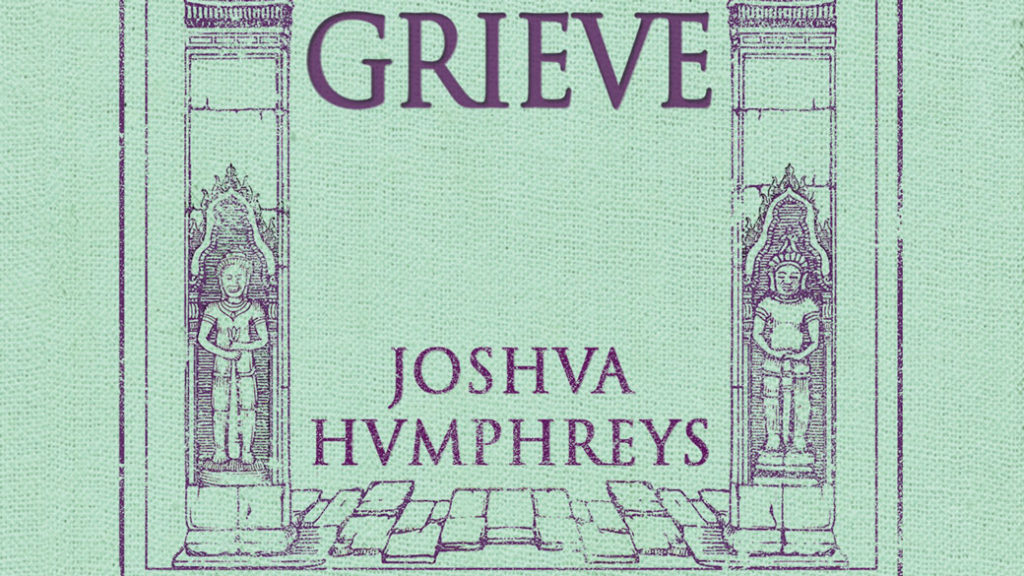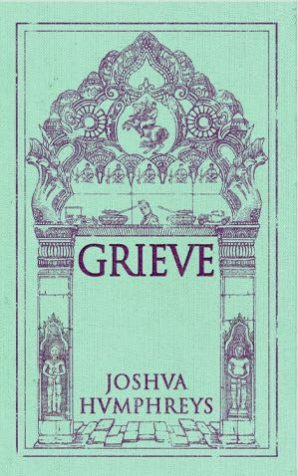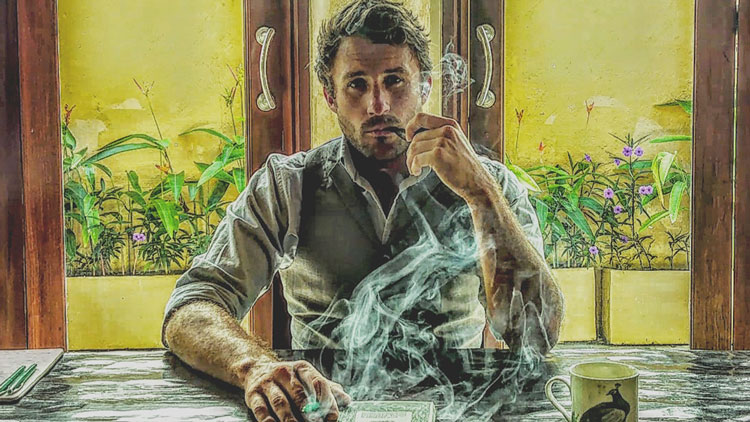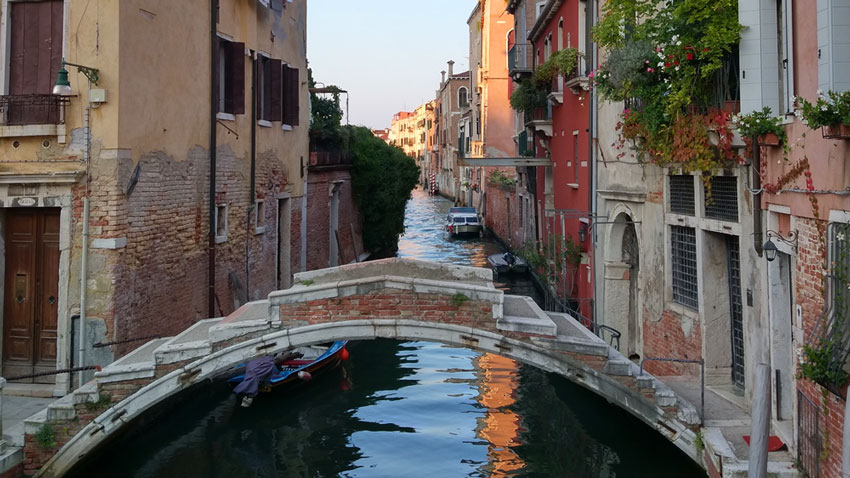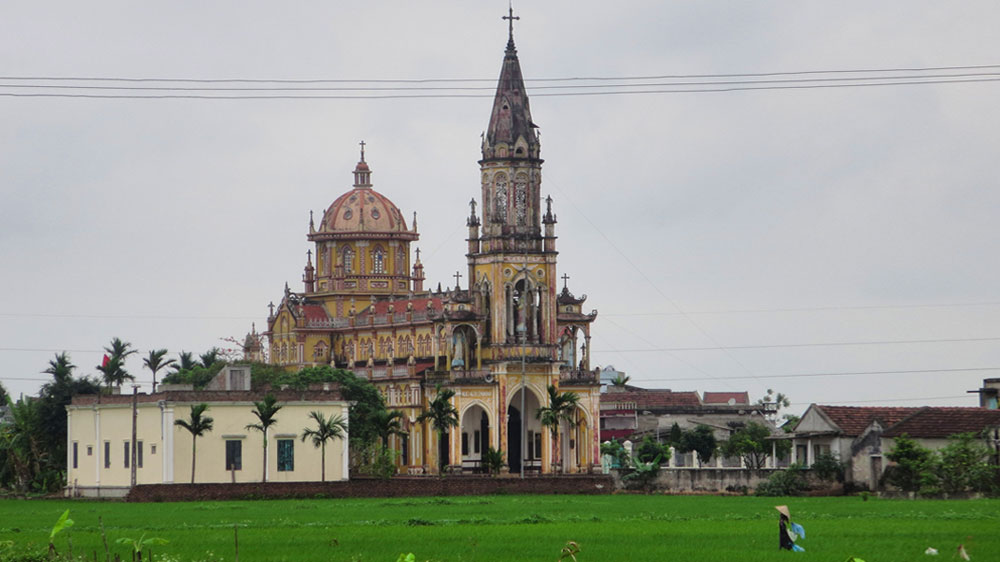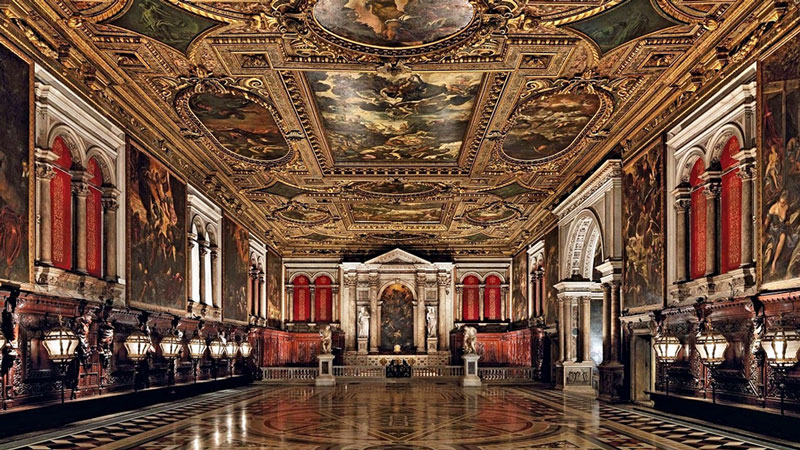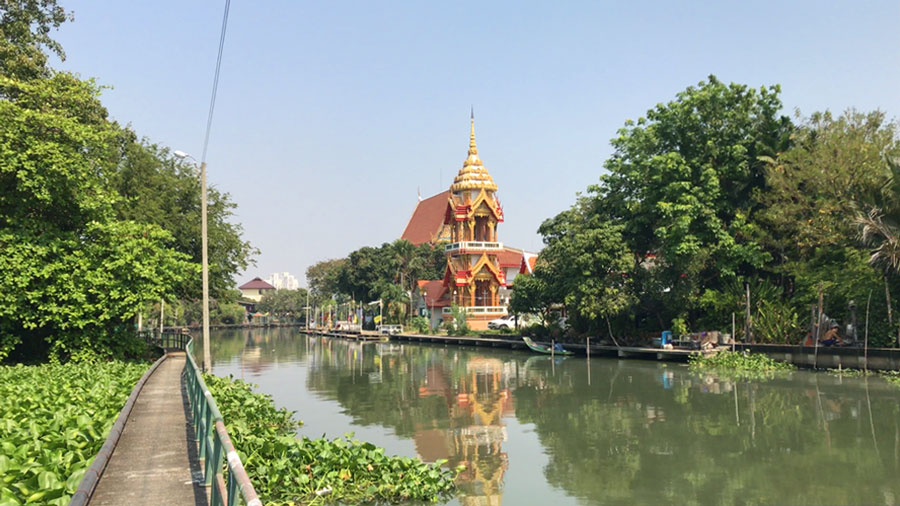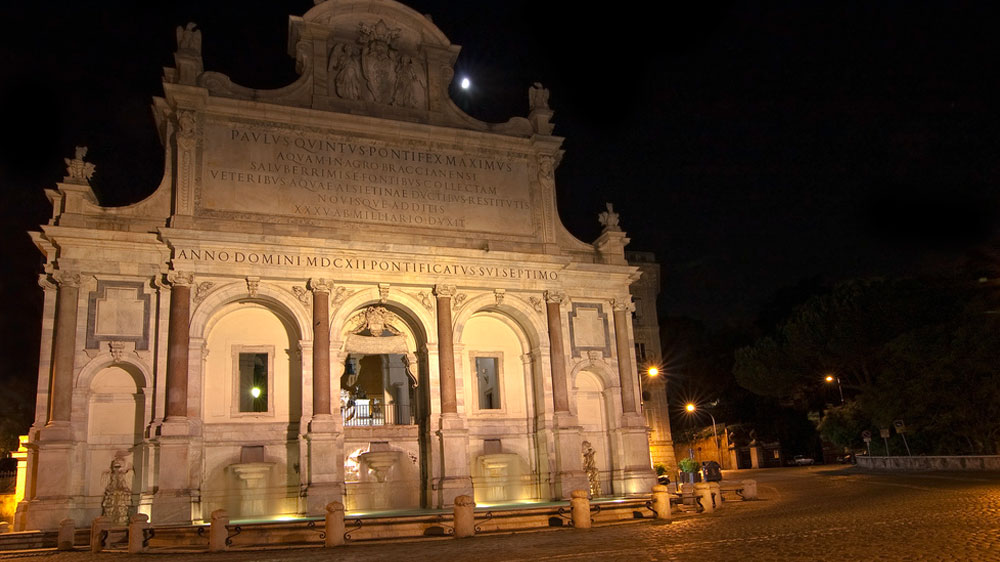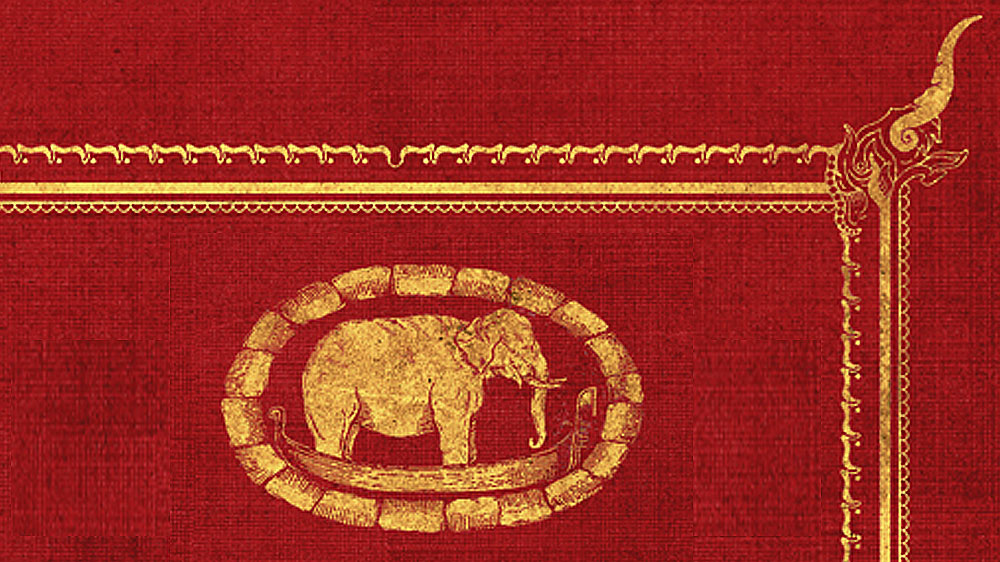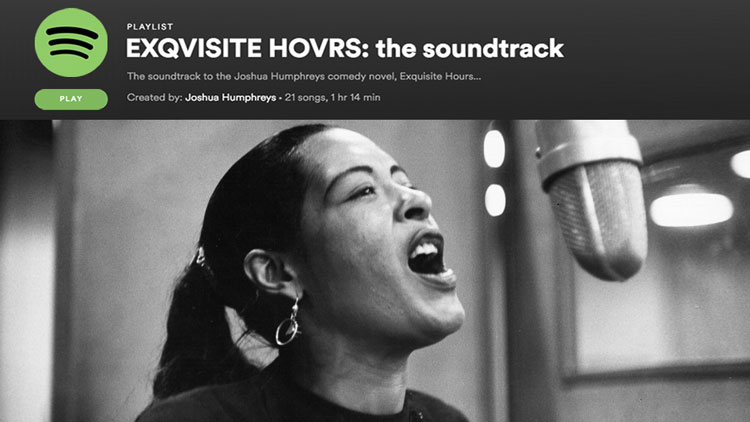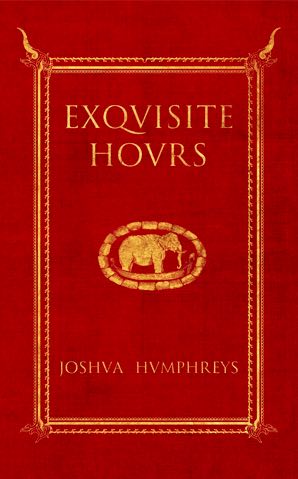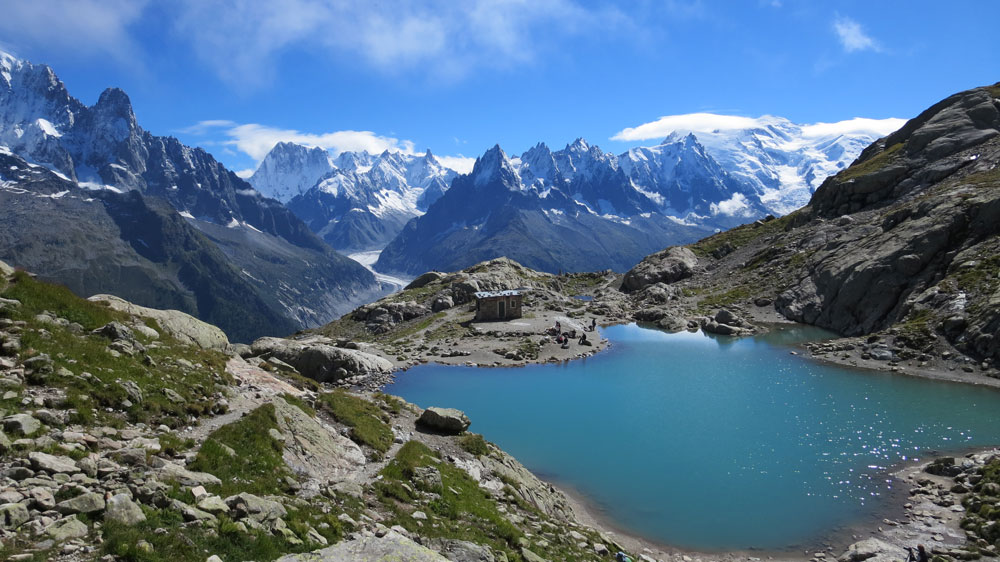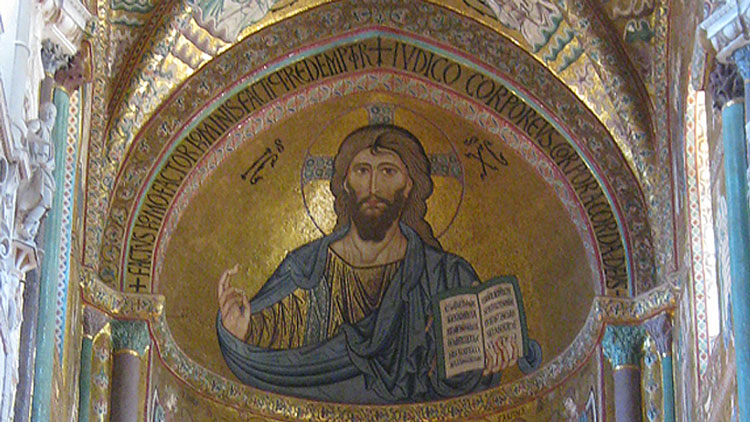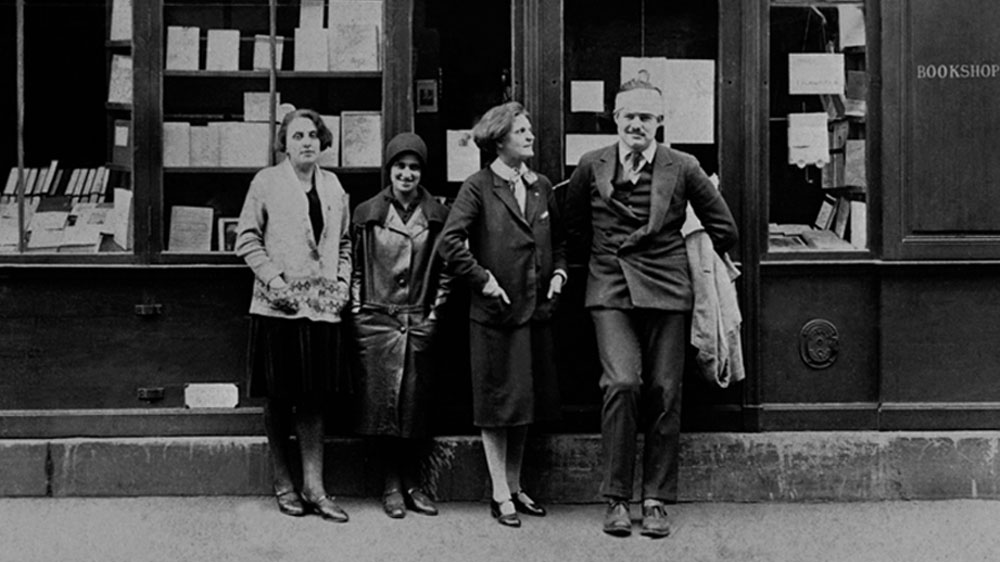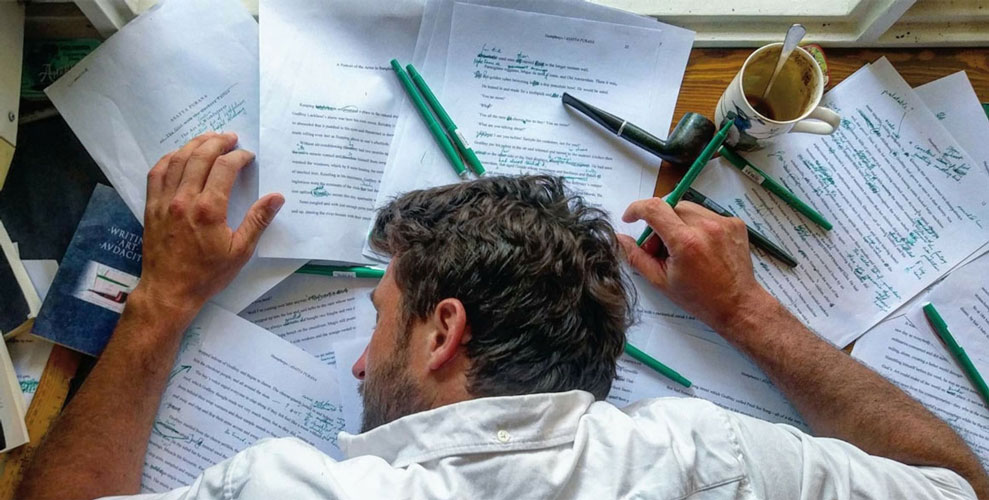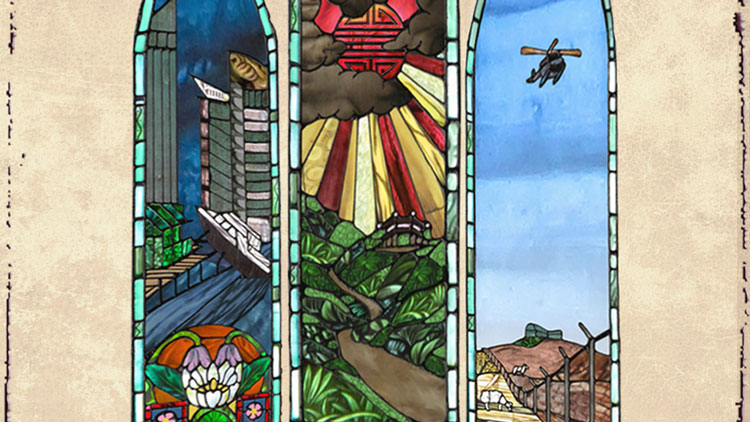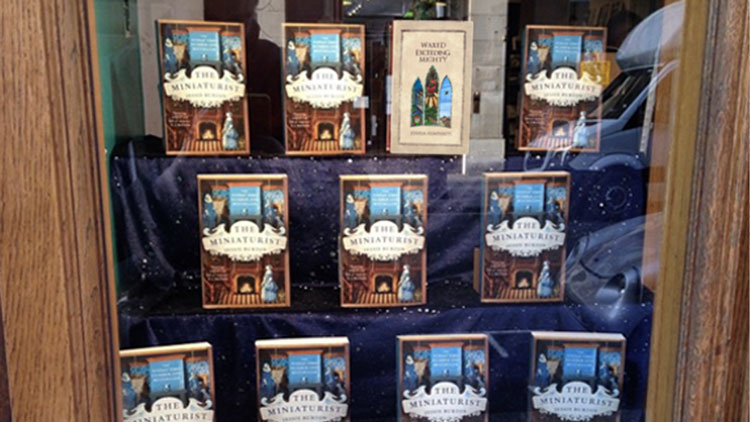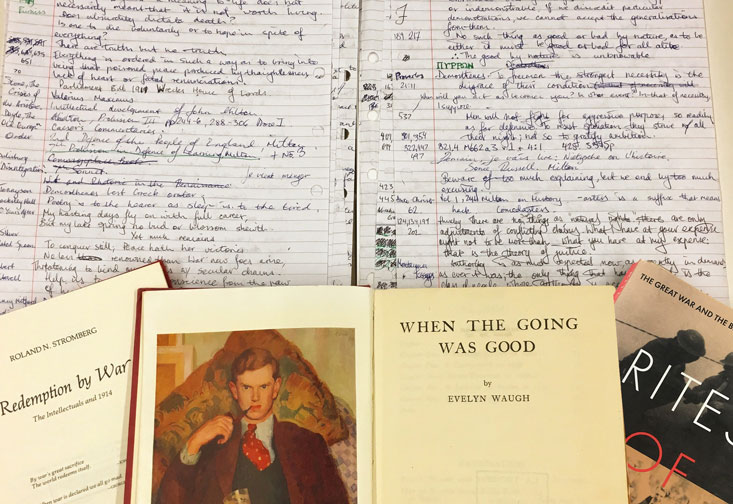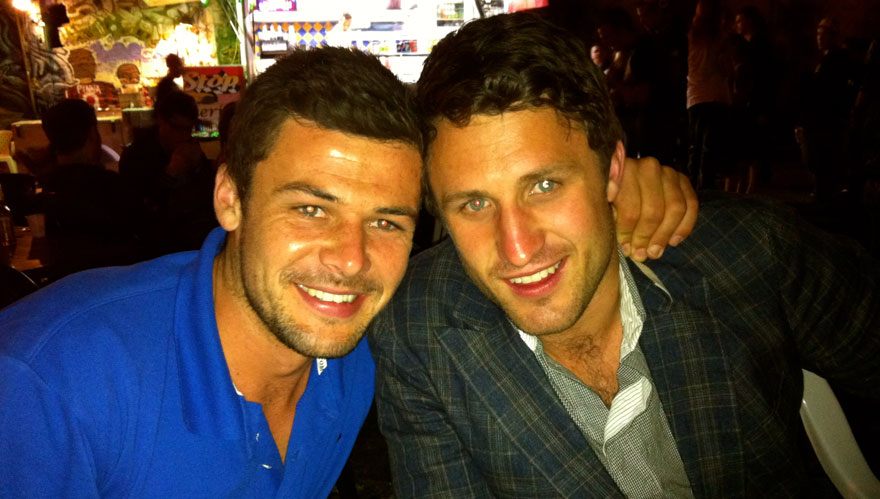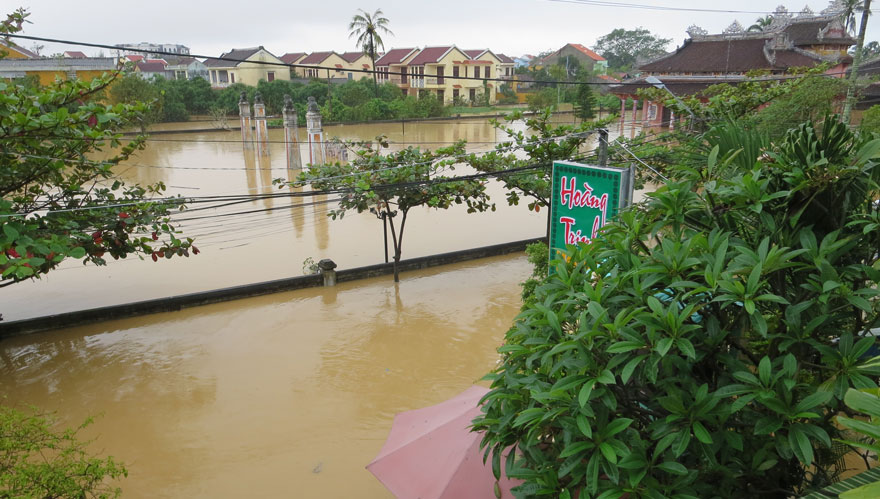by Joshua Humphreys
COMEDY NOVELIST | GALLIVANTER | BONOBO
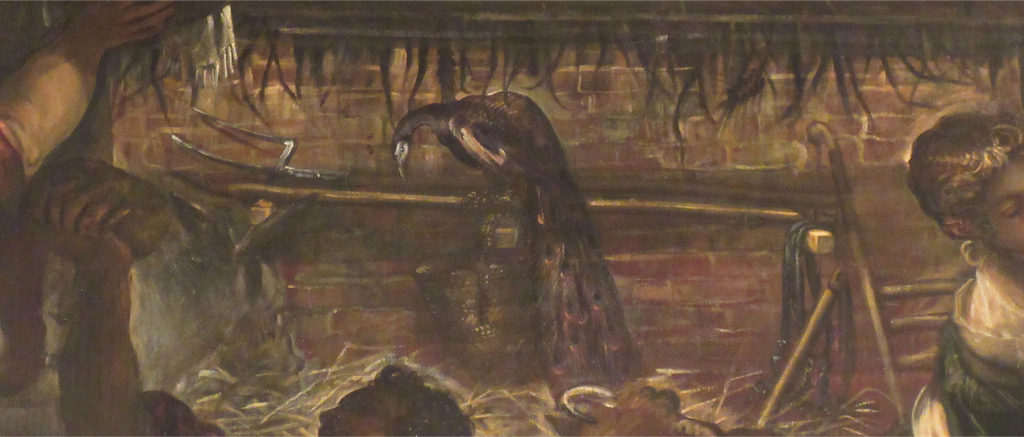
THERE ARE only four buildings worth getting to know in Venice—the Basilica, the Ducal Palace, San Zanipolo, the Scuola di San Rocco. In the first may be seen its soul, in the second its mind, the third its heart.
Only in the fourth do you see all three.
Its façade was begun in 1515, when the Scuola was the second poorest of Venice’s scuole grandi—benevolent fraternal societies. Instantly regretting that they had spent so much money on their fancy new building instead of investing it in their future, they were in 1527 hit with a stroke of luck.
San Rocco—St. Roch—is what’s called a plague saint, prayed to by individual and state alike to heal the sick and deliver cities from epidemics. And in 1527, a severe outbreak of plague hit Venice. The number of private donations to the Scuola from people hoping to protect themselves from disease rose to its highest level ever, and they were able to finish their building.
What you are looking at was built by plague.
What kind of a building did plague build in 1527? It has codussian windows but there are no Venetian gothic elements—though it’s still not perfect Renaissance, as not symmetrical. Once they have finished the outside, the scuola decides to decorate the inside, and they hold a competition to see who is going to paint it for them.
450 years ago they called for submissions for sketches of a painting to be done for the ceiling of their Great Hall—the room at the top right of the façade. Artists have a month to prepare their drawings; Salviati, Zuccari, Veronese all submit entries.
The night before the competition is to be judged and the winner announced, one Venetian painter, who has obtained by bribery the ceiling’s measurements, talks his way into the scuola and has his finished painting put in place.
The school, almost angry, and the other painters definitely so, denounced him and his entry. ‘We-a were meant-a to only submit a sketch-a!’ This artist replied that it was simply his way of working and that he knew no other method. He won the commission.
His nickname was Il Furioso. The Furious One. His birth name was Iacopo Robusti. Everybody, and we, call him Tintoretto.
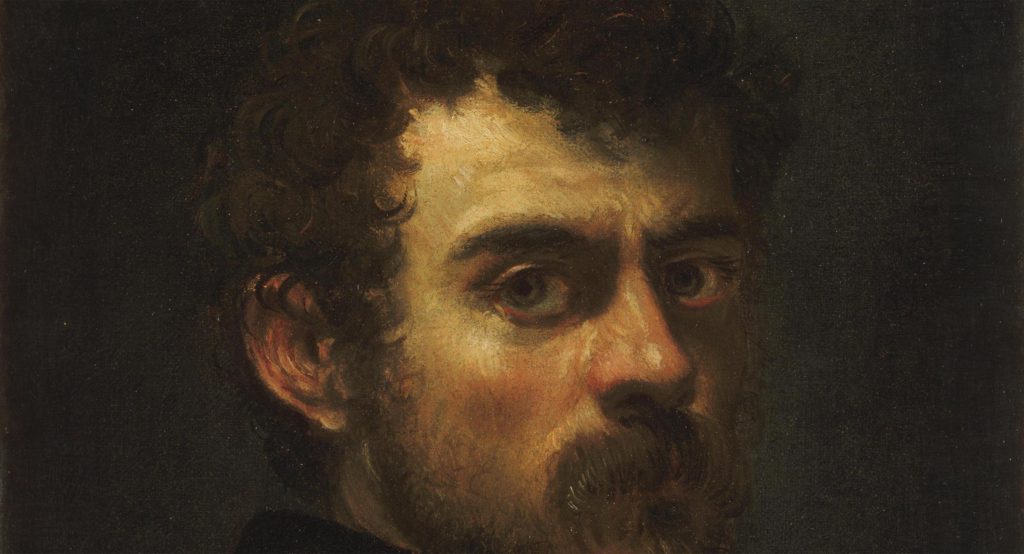
Born in 1518 as the first of 21 children, Tintoretto at 15 was apprenticed to Titian—56 years old—and lasted ten days: Titian knew he would be no pupil, and dismissed him. After eight years in the studio of an unknown artist he emerges wielding one of Venice’s most unique brushes. He later placed over the doorway of his studio in Cannaregio his artistic motto, his personal synthesis: ‘The design of Michel-angelo and the colour of Titian.’
In 1546 Tintoretto painted for his parish church three of his greatest works, taking the commission for two of the paintings—the Worship of the Golden Calf and the Last Judgment—on a cost-only basis, simply to get his work out there and to make himself better known.
Ten years after the sketching competition, the scuola put out tender for the main room, the largest. Tintoretto says he’ll do the whole thing, three paintings a year, at cost price—if they give him a pension of 100 ducats for life. And so they do.
He paints the whole upper room over the course of 15 years and ten years later again, (after working on and in the Doge’s palace, including painting the largest canvas in the world) Tintoretto, now the greatest master in Venice, paints for the Scuola di San Rocco their lower room.
So we have, in one building, the middle and most vigorous and powerful years of an artist’s life, and the most polished end of a genius’s career. As well, we have, in my opinion, the greatest painting on earth—and you are about to look at it.
But as you walk in, you have to make me a promise: that you will keep your eyes to the floor. You promise? Good. Now pay your 10 euros, the most valuable you will ever pay, and walk to your right and you’ll see in the corner of your downcast eyes a staircase. Go up it, and keep your eyes down! And as you hit the landing, cast your eyes down AND KEEP THEM DOWN! Veer left until you are almost at the back wall. Keep your goddam eyes down!
Then, turn to the end of the room from which you have just walked, with your eyes down!
And look up…
The entire room is Tintoretto. Later Tintoretto.
Above you, scenes from the Old Testament. The largest panels—episodes from the return of the Israelites from Egypt to Israel. Directly overhead, the Striking of the Rock; in the centre, the Raising of the Brazen Serpent; at the front of the room, the Descent of Manna.
On the walls are scenes from the life of Christ, not in chronological order, and nobody knows why. To your far left, a nativity (with Tintoretto’s only peacock—see this essay’s header), then a Baptism, a Raising of Lazarus. And at the front left of the room, its darkest painting, The Agony In The Garden.
Do you know the story? The night before he was to be crucified Jesus went into the garden of Gethsemane with three of his disciples and prayed to be released from his fate. An angel appeared to strengthen his mind, before he finally accepted that it was not his will that was to be done, but God’s: NON SICVT EGO VOLO, SED SICVT TV. Remember the central archway of the basilica? ‘Not as I will, but as thou wilt,’ FIAT VOLVNTAS TVA—Thy will be done. And he went out of the garden, where he found his disciples asleep and said, ‘Peter, are you fucking serious—you couldn’t watch over me for half a goddam hour?’ And while they were sleeping—see to the left—the police come to arrest him, and the next day he was tickled to death / crucified.
Tintoretto’s nickname—Il Furioso—came from how quickly he worked. Remember his painting-in-a-month, not a sketch-in-a-month? Ruskin got close enough to this Agony in the Garden to claim that the brushstrokes are so big that it might have been painted with a broom.
Now walk back to where you turned around and return your eyes to the floor. And get ready.
In Ruskin’s ‘Venetian Index’ he describes every single painting worth seeing in Venice. But there is one which he refuses to even touch upon:
I must leave this picture to work its will on the spectator; for it is beyond all analysis, and above all praise.
It is in the next room.
See the room in the corner there, far left as you came up the stairs? EYES DOWN! Walk towards it. As you step through its doorway, EYES DOWN! you may look up at the wall in front of you.
I shall do a little explaining, and then tell you why this is such a brilliant painting. But first—what others have said about it, and about Tintoretto.
Ruskin, on seeing this crucifixion for the first time:
I never was so utterly crushed to the earth before any human intellect as I was today—before Tintoret. … He doesn’t seem to be able to stretch himself till you give him a canvas forty feet square—& then, he lashes out like a leviathan, and heaven and earth come together. Just imagine the audacity of the fellow.
I felt only that a new world was opened to me, that I had seen that day the Art of Man in its full majesty for the first time; and that there was also a strange and precious gift in myself enabling me to recognise it, and therein ennobling, not crushing me.
Though he didn’t very much like Il Furioso, Vasari still saw fit to call him ‘swift, resolute, fantastic and extravagant—and the most extraordinary brain that the art of painting has ever produced.’
His more sympathetic biographer, Ridolfi, wrote, ‘In their multiplicity and singularity Tintoretto’s inventions are impossible to explain. … His brush was a thunderbolt that terrified everyone with its lightning.’
Henry James on Tintoretto and his works in the Scuola di San Rocco:
We shall scarcely find four walls elsewhere that inclose within a like area an equal quantity of genius. The air is thick with it and dense and difficult to breathe. … It is not immortality that we breathe at the Scuola di San Rocco, but conscious, reluctant mortality. … Before Tintoretto’s greatest works you are conscious of a sudden evaporation of old doubts and dilemmas. In the memory of vanished hours so filled with beauty the consciousness of present loss oppresses. Exquisite hours, enveloped in light and silence, to have known them once is to have always a terrible standard of enjoyment.
‘There is too much going on in this picture,’ said Wagner, and even David Bowie had an opinion on him: ‘Tintoretto built his career as a proto rock star.’ Cezanne:
Tintoretto, Rubens, they are what it means to be a painter. As Beethoven is the musician or Plato the philosopher. Chaste and sensual, brutal and cerebral, wilful and inspired, I think he must have known everything except sentimentality, that Tintoretto, everything that creates joy and torment in man. Look at me, I can’t talk about him without trembling.
Sit down. Stay a while. This painting gets better and better with every second that you stare at it.
So why is Tintoretto such a genius? I thought you’d never ask.
Look upon his Crucifixion. It is from 1565, almost exactly the mid-point of his career and life.
The sky—‘When the sixth hour was come, there was darkness over the whole land until the ninth,’— is dark and a storm has appeared. Yet the Venetian silks upon these Venetian Romans and Venetian Jews shimmer all. In what light? That of the Christ’s areolas.
Sorry—in that of Christ’s aureole.
Then, Tintoretto’s work transcends time. What was Palm Sunday? The day of Christ’s return to Jerusalem at the head of a procession of his followers, all of them holding palm fronds, Jesus riding an ass.
Behind the man being crucified on the left—a donkey on Golgotha, eating—can you see?—dry palm fronds. Everything is come full circle. The end is as the beginning, the beginning a prophesy of the end. Turn around. A coincidence, you think, that the only painting you can see in the other room is of Christ’s birth?
‘The most extraordinary brain that the art of painting has ever produced.’
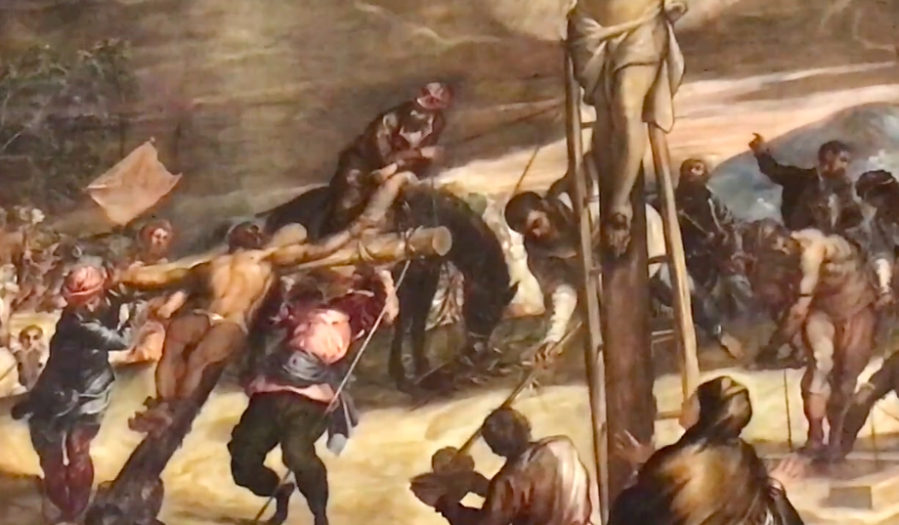
Though neither the ass nor the light from Jesus’ halo are realistic, neither are they false. They are part of what Ruskin called the Imagination Penetrative— the artist suggesting more than he has actually put on the canvas. By Tintoretto’s conception, through his imagination, they represent the essence of the Crucifixion, and so they are true.
The power of every picture depends on the penetration of the imagination into the TRUE nature of the thing represented. In the Crucifixion the imagination annihilates locality, and brings the palm-leaves to Calvary, so only that it may bear the mind to the mount of Olives.
But it gets even better.
Christ in the centre of the painting is already up. He has, though he’s still alive, been crucified—it’s in the past. To his right, our left, the good thief is being crucified. The soldier is in the motion of reaching his right arm around to grab the rope and pull the second crucifix into place. It’s the present, what’s happening now. And to Christ’s left, the bad thief—resisting his fate—is having the nail-holes drilled into his cross. He will be crucified.
Tintoretto paints for us, in a single static moment —past, present, and future. His work transcends time. If we let it do its work on our imagination, which in turn forces our imagination to do its work on it, the painting becomes a vivid and tumultuous widescreen film. Not for nothing did Sartre call Tintoretto the first movie director in history.
Look to the right of the room. See the sculpted Crucifixion there? What’s the biggest difference between this figure of Christ, and Tintoretto’s? See his arms: the sculpted Christ creates a gap from the crosspiece, his shoulders are drooping—as is natural for a man who’s been nailed by his hands and then raised upright. But Tintoretto’s Jesus?
His arms are level with the crosspiece. Jesus is robust, alive, Herculean—spiritual force overcoming worldly power. At least six hours into his Crucifixion and he is as calm and alert as ever and looking down about him. And his legs? Look at his left knee. He looks as though he’s about to step off the cross, down into the Scuola di San Rocco—and his shoulders: though his hands are nailed down he looks like he’s pulling them forward—determined to step down into Venice, into this very moment, and stand before you.
Tintoretto’s Jesus is not just for 1st-century Jews, it is for Venice, now: all the participants, and the many many spectators, are in Venetian dress. But it is not alone for 16th-century Venetians. He is stepping down into the room. It is for your now, this very moment: Christ is crucified, but lives.
‘A sudden evaporation of old doubts and dilemmas…’
Beyond all analysis, and above all praise.
When eventually you’ve finished in this room, you can go back downstairs and see Tintoretto’s other, most finished, paintings in the Scuola, those illustrating the life of Mary.
The Annunciation is closest to the entrance, behind the ticket booth; an Adoration, The Flight into Egypt, the Massacre of the Innocents. Enjoy especially the action and the magical realism of the first and last of this left-hand wall.
And then you may walk out of the Scuola di San Rocco, and be sure that you have just witnessed the height of Venetian artistic power, the darkly shaded fruits—mental & spiritual—of 400 years of struggle, growth, and of mastery.
Ruskin (sick of him yet?) said:
The moment when, in any kingdom, you point to the triumphs of its greatest artist, you point also to the determined hour of the kingdom’s decline.
So you can be sure too that you have passed beyond, without perhaps being able to see it, the commencement of the decline of Venetian power.

